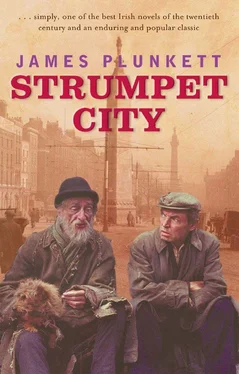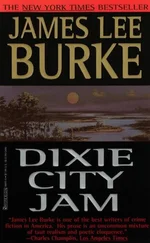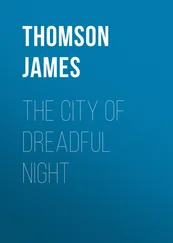What do you think of the decorations?
Fitz
PS. Give my regards to King Ed.
She folded the note and saw that it was almost half past one by the town hall clock. Fitz would be waiting at the Liffey Wall, where Butt Bridge let the heavy traffic cross from the South Wall into Beresford Place. The sun was now full and warm in the cloudless July sky, so she travelled on the top section of the tram. It was open to the heat and the light. There was hardly anybody else. The trolley sang and rattled in front of her, bucking and sparking when the wires above it crossed at junctions, its great spring stretching and contracting like a concertina. She would be late, but Fitz would not mind. It was over a year now since their first meeting. It had happened at Seapoint too. She had gone down to the strand, passing close to a young man who was sitting on the rocks and who smiled at her. She ignored him. Down at the water’s edge she removed her shoes and began to paddle, holding her skirts away from the water but as little as possible because of the young man. He was watching her. Although there was no one else on the beach the situation did not trouble her. It had been a nice smile. She felt quite sure there was nothing to worry about and that the young man meant nothing more dangerous than gentlemanly admiration. It was nice to be admired from a respectful distance, to feel the water cool about her ankles and look down through it at the wrinkled sand. She paddled for half an hour and was on her way across the sand to fold a spot where she could sit and put on her shoes again when she walked on the shell. It cut deeply into the sole of her foot and when she felt the pain and saw the gush of red blood she cried out and stumbled. Tears clouded her eyes so that when eventually the young man bent over her she felt his presence for quite a while before she could see him clearly.
‘That’s a bad gash,’ he said, ‘let me help you.’
It was embarrassing to sprawl with bare feet on the damp sand under the eyes of a complete stranger. She felt foolish and undignified. But when she rose and tried to walk by herself she was unable.
‘Look, I know something about this,’ the young man said.
She made a rapid appraisal of him. He had a very pleasant face with dark hair and eyes which reflected kindness and concern. It was a good face. Everything was all right.
‘You’re very kind,’ she said.
He drew her arm around his shoulder and put his other arm about her waist. That shocked her for a moment until she realised that it was necessary. He was half lifting her and his grip was firm. She could feel his body against hers. The sensation was pleasant. He released her when they reached the rocks and examined the cut.
‘Have you a handkerchief?’ he asked. His own was coloured and they thought it might be dangerous. She produced one which was too small to be of use. He went away some distance and returned with his towel which he tore into strips.
‘This’ll do the job,’ he said.
Mary who found destruction of any kind unbearable, protested.
‘Your good towel, it’s a shame.’
‘What’s a towel,’ he said carelessly, and went on bandaging. It was a neat job. She found she could get her shoe on.
‘That’s wonderful,’ she said.
He smiled at her.
‘I look after the first-aid box and that sort of thing on the job,’ he explained.
‘You’re quite an expert.’
‘You’d better rest it for a while,’ he said.
They sat together, silent.
‘I’m on shift work in Morgan’s Foundry,’ he said.
‘Are you long there?’
‘Three years constant. Of course I was casual before that.’
‘Casual?’
‘You stand at the gate every morning and at eight o’clock the foreman comes out and says “I want you, you, you and you.” ’
He gave an imitation of the foreman singling out the lucky ones.
‘What happens if he doesn’t select you?’
‘You drift round to the quays and see if you can get work discharging. If you can’t you go home and hope for better luck the next time.’
‘But you don’t have to stand at the gate now?’
‘No. I’m constant in No. 3 house—a stoker.’
He pulled up the left sleeve of his jacket. There was a long red weal on his arm.
‘That was a present from No. 3 furnace I got the other day. It empties hot ash on you if you don’t keep your eyes skinned.’
‘Did it burn through your jacket?’ she asked. She found it hard to believe.
He hesitated. He put it as delicately as he could.
‘We don’t usually wear very much when we’re stoking,’ he said.
She realised that he meant they worked stripped.
‘Well,’ she said, glossing it over, ‘I’m lucky you weren’t stoking today.’
‘So am I,’ he said.
There was no mistaking what he meant.
She was pleased but was careful not to betray it.
‘I think it’s time I tried to get home,’ she said, rising.
He rose with her. Again she found it painful to put very much weight on her foot.
‘Let me help you,’ he said.
She consented, but this time she managed by allowing him only to link her. They reached his bicycle and after some persuasion she agreed to let him take her on the carrier. When they reached Kingstown she made him bring her to Mrs. Burns’ shop, where they parted, Mrs. Burns undertaking to see her home. He said his name was Bob Fitzpatrick and he would like very much to meet her again. But she was doubtful.
The next day, much to her relief, he left a note for her at Mrs. Burns’. And the next day again. The little sweetshop became a sort of private post office. It had continued so as their meetings became more frequent and their love grew.
The tram stopped short of the city centre and Mary had to get off. The royal procession had just passed, or was passing, or was about to pass, on its way to the Viceregal Lodge. The conductor was not sure. Mary forced her way through the crowd, which grew larger and less penetrable the further she went. Eventually she found herself jammed and immobilised. She thought of Fitz waiting at Butt Bridge and looked around desperately for a way out. There was none. She held tightly to her purse, remembering the newspaper warning about pickpockets. The royal occasion had drawn them in hundreds to the city. There were gentlemen in bowler hats, younger men in caps and knickerbockers, an odd policeman here and there keeping sharp eyes on the crowd. A ragged man with a beard was singing out a rigmarole to draw attention to the favours on his board.
‘One penny each the lovely ribbings. Red for royalty, white for fraternity, blue for Britannia and green for the beam of the fair isle of Erin. Buy your emblems of honour.’
It was Rashers Tierney. He came towards Mary. It was part of his technique to be able to move in the densest gathering.
‘Buy a favour, miss,’ he said to her.
She shook her head. She was thinking about Fitz.
‘For luck, lady,’ Rashers persisted. He held one up to her.
There was something hungry in his face which moved her. She gave him a penny. He pinned the ribbons in her coat.
‘God bless and reward you,’ he said, moving on.
She tried to do so too but made little progress.
A band was approaching, unseen but faintly heard. Horses stamped and pennants, at a great distance, tossed in orderly file above the heads of the crowd. A cheer began, travelling through the street until those around Mary joined in. It was overpoweringly warm as the heat of packed bodies augmented the blaze of the sun. Yet there was a communicated excitement too which drew Mary to her toes. She found it hard to understand Miss Gilchrist’s bitterness against the King. Patriots had been put in gaol and banished into penal servitude, of course, but you could not expect a king or a queen to do nothing to people who openly threatened to take over the country themselves. They made beautiful speeches, the patriots. They defied their judges and said they preferred English chains or even the gallows to an English king ruling over Ireland. Yet when all was said and done what great difference would it make, whether King Edward or the others ruled over Ireland? Would the patriots come back and live in Cahirdermot, scratching for a living like her father and her father’s people? Kings built great cities and that was why there were aristocrats and gentry and after them business people and then shopkeepers and then tradesmen and then poor people like Fitz and herself. Who would give work if there were no kings and gentry and the rest? No one ever said anything about that.
Читать дальше












